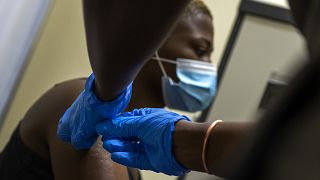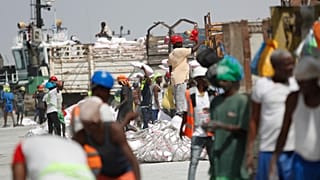Yellow Fever
Fewer People Will Lose Their Lives to Yellow Fever
The World Health Organisation (WHO) will change its policy to recommend using partial doses of the yellow fever vaccine in times of shortages during an outbreak — thanks to results of a recent study led by the Doctors Without Borders Epicentre in collaboration with the Kenya Medical Research Institute, Institut Pasteur de Dakar, and the WHO itself.
Most cases of Yellow Fever — a mosquito-borne acute viral hemorrhagic fever that causes 30,000 deaths per year, occur in Sub-Saharan Africa.
The disease as of yet has no cure.
Hence, prevention is essential — especially as predicting outbreaks is difficult and vaccine production takes up to 12 months to complete.
As this recent study revealed that administering one-fifth of a standard dose of the yellow fever vaccine is effective and safe, governments and health organisations will be able to manage shortages and save many more lives in periods of crisis.












01:10
Measles vaccination drive expands in east of DR Congo as conflict persists
Go to video
UNICEF secures agreement to cut malaria vaccine costs
01:45
MSF: Hundreds subject to torture and sexual violence following RSF takeover of El-Fasher
01:03
Outbreak of viral hemorrhagic fever claims 6 lives in Ethiopia: WHO responds
00:54
A third of Japan-donated Mpox vaccines wasted in DRC due to storage challenges
01:31
South Africa starts clinical trials on first locally developed oral cholera vaccine